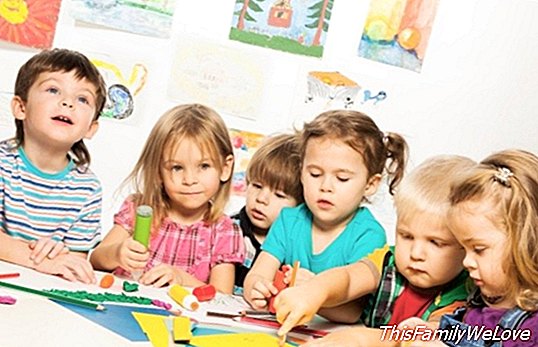More than 200,000 Spanish families can not afford to take their children to a nursery school

Children's schools are presented as a first step in the academic life of children. In these centers different skills begin to develop in the children that will then continue to be promoted in the school. In addition, these environments also serve so that many households can achieve the difficult reconciliation between work and family life.
However, we must not forget about the costs of nursery schools for families. A fact that makes many homes can not afford to take their children to these centers. A situation that is noticed by the World Association of Early Childhood Educators, Amei-Waece.
Equal opportunities
The reality of Spanish families is that more than half of households with children between 0 and 3 years old do not take their children to early childhood education centers. 200,000 of them admit not using these centers because they can not afford it. For this reason from Amei-Waece claim "more schools of early childhood education to ensure equal opportunities to all children in Spain."
Based on data from the latest Living Conditions Survey, 30.9% of households would like to have used the services of pre-school centers in more than they did. In just over 52% of the cases, the shortage of income was the main reason.
Juan Sánchez Muliterno, president of Amei-Waece, explains that "the latest Survey on Living Conditions highlights the inability of public institutions in Spain to guarantee real equality of opportunities for all children, since there are not enough mechanisms to that families with less income can enroll their children in children's centers at a crucial moment in their development. "
Finally Amei-Waece emphasizes that "the education of any child must begin immediately after his birth and with the support of centers with specialized professionals, so that, regardless of the level of income of their families, each child has the same opportunities to receive an adequate and quality education that goes in favor of its proper development and that ultimately reduces dropout rates and school failure ".
Children's schools and conciliation
As has already been said, nursery schools, in addition to providing a first contact with the academic world, these centers also help many families to achieve reconciliation. This can be seen in the Guardería & Familia 2018 study, where almost 75% of those who use these services acknowledge doing so because they do not have time to take care of their children.
Another example is that the time children spend in nursery schools often coincides with the working day. Specifically, 64.4% of children spend between 5 and 8 hours in the nursery; and even more than 8 hours reaches 20.59%. Stay that lasts 11 months a year for 52.67% of children and 10 months for 29.8%.
Damián Montero




